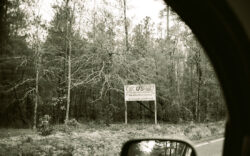Why is it that a garden takes so much work to make things grow—vegetables and flowers, shrubs and trees—while weeds will grow anywhere without being watered, fertilized, mulched, pruned or, well, weeded? The beauty produced by a well-tended garden is a delight to the eye, a respite for the soul and a triumph of purpose over chaos, wrought out of hot, hard work by people who accept the effort because their vision of what can be achieved makes it all worthwhile.
Always lurking to take over any garden is an army of tough, invasive, persistent species that we call weeds. My father-in-law, a good gardener, called a weed “a plant out of place,” but I don’t think there is any place for potato vines.
Do you know potato vines? I’m not talking about those that eventuate in sweet potatoes. I mean those triangular-leaved invaders that will take over your garden while you’re eating lunch. They’ll twine up the stalks and limbs of your plants, growing from a root that looks like a little elongated potato, and if you let them go long enough, they’ll cover themselves with tiny potatoes, and each one will sprout next year with a new potato vine. This is a good year for potato vines, just like it is for wild garlic.
Do you know wild garlic? The long stem with first the bud and then the pretty little white flower. They’ve had a bumper crop this year. The real horror comes when you start to dig them out of your garden. When you get down to the garlic “bulb,” you find it plastered with tiny seeds ready to explode like a little cluster bomb, so that by digging it up, you do it the favor of distributing its seeds for next year’s invasion. Devilish.
And of course wild onions. I can’t possibly dig them all up, and I don’t want to poison the birds, so I just try to keep the onions mowed. Same with the clover. Pretty enough and the honeybees love it, but the only way to get rid of it is to pull it up strand by strand, and it comes back next year anyway.
And then there are the “garden variety” weeds we always have with us: briars, ivy, honeysuckle, poke salad, kudzu, smilax. Do you know smilax, the pretty evergreen vine popular for decorating at Christmas? I don’t know how it does it, but smilax somehow spreads underground, which is weird because it grows out of a gigantic, tough, sinewy root almost impossible to dig up and its curvy, leafy green vines will climb your trees overnight. And then just for fun, there’s poison oak.
As if all that weren’t enough—and it is way more than enough—the gardener is beset by an army and an air force of bugs: mosquitoes, gnats, ticks, wasps, yellow jackets and, yes, fire ants! To produce a garden, you have got to get down amongst all these buzzing, crawling, biting, stinging, creeping creeps which have even fewer redeeming virtues than the weeds: zero, actually.
Since in addition to being a sometime yardman I am also a sometime political observer. I can’t help seeing parallels to local government. After decades of working to create a government that nurtures the growth of all our citizens, we dug out space to help all prosper, in spite of those who would begrudge them the sunshine. Now, like the potato vines, they’re back, scooping up commission seats they opened by ripping out their roots, aided and abetted by commissioners we thought supported the government we worked so hard to grow. Now like the wild garlic with its underground movements they’re even emboldened to uproot our governmental management.
One could say that the keepers of our garden let down their guard and allowed the weeds to take over, and maybe that’s true to some extent, but the main blow was not neglect, it was a man-made blight in which “our” Republican legislators ripped three of our strongest commissioners out of our government by plowing their seats under and replacing them with seats for which they were ineligible. That’s when our elected government was poisoned by opponents who hate equality as much as they desire to take power over our town. And they’re taking it.
Good gardeners know there are setbacks, sometimes severe, but they’ve got to keep on digging, keep on fighting the negatives. As Voltaire’s Candide concludes: “We must cultivate our garden.”
Like what you just read? Support Flagpole by making a donation today. Every dollar you give helps fund our ongoing mission to provide Athens with quality, independent journalism.










